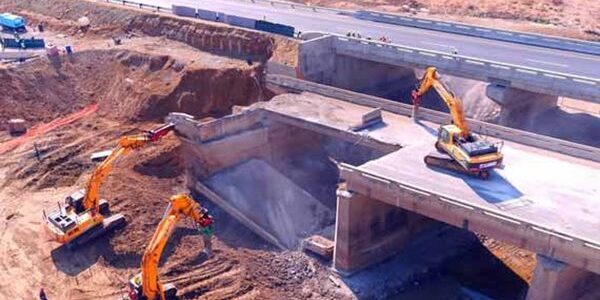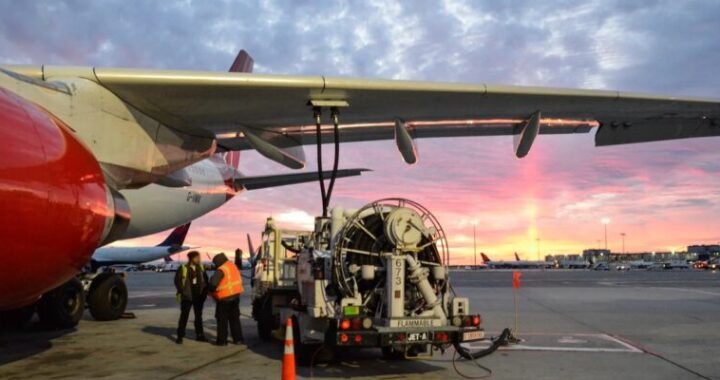DOES VELOS CONSTRUCTION HAVE ROAD-MAKING EXPERIENCE FOR THE LUSAKA-NDOLA DUAL CARRIAGE WAY PROJECT?

By Shalala Oliver Sepiso
When I did an unsolicited article on Velos Construction Limited – two days ago – to show that it is a Zambian company that needs all the support in its bid for the Ndola-Lusaka Dual Carriageway project – I didn’t expect the overwhelming responce it got. It was well-received I must admit. And thanks. I was somewhat surprised, though, because I was simply filling up an information gap on the identity and form of these bidders. And all the information I used is online in the public domain and I didn’t have to do much to research. Maybe, as they say, “if you want to hide information from Zambians, put it in writing”.
Having debunked the theory that Velos was South African, those who don’t support this bid were insisting that Velos has zero road-construction experience and shouldn’t be given this deal.
So does Velos have any road construction experience?
Now before I answer that one, we need to understand what is really happening here with the Dual-Carriageway Project.
The Lusaka-Ndola Dual Carriageway contract was initially awarded to China Jiangxi in 2017 at a cost of US$1.2 billion. This was in a tender which included the construction of the RDA office building, service stations, toll gates and other amenities along the the 321km Lusaka-Ndola Dual Carriageway. Former President Edgar Lungu flagged off the construction of the thoroughfare and US$30 million is said to have been paid to a contractor even though not even a single kilometre was ever done.
There is a rumour that China Jiangxi claims that the US$30 million was spent on geotechnical survey, road designs, environmental impact assessment and resettlement action plan.
In January 2022, Transport and logistics minister Frank Tayali disclosed that the contractor who was engaged to do the Lusaka-Ndola dual carriageway at US $1.2 billion had come back in the country and had agreed to do the works at 50 per cent of what it was pegged at under the PF regime.
However, in mid-February, the Road Development Agency advertised a tender request for Expressions of Interest from companies and Consortia that had bankable and viable proposals for the upgrading to dual carriageway of approximately 327KM of the T2/T3 from Lusaka to Ndola. The project would include construction of 327km of new carriageway between Lusaka and Ndola and rehabilitation of the existing carriageway; Construction of bypasses of approximately 20km in Kapiri Mposhi and 20Km in Kabwe; Rehabilitation of 45km of Masangano to Luanshya (connecting Kabwe Road to Ndola-Kitwe Dual carriageway); Construction of toll plazas and Construction of Weighbridges.
The tendering process was open and transparent.
This road was no longer to be done through government financing. Instead, it was to be done under a Public-Private Partnership (PPP) arrangement. I can say it without any reasonable doubt, that the PPP model is the best route to take in having this massive infrastructure project done. PPP entails private a investor putting up public infrastructure at their own cost and then running the asset for a specified and agreed number of years to recover their investment. There are many PPP models but Build Operate then Transfer (BOT) is most widely used one.
Earlier this month, Minister of Infrastructure, Housing and Urban Development Charles Milupi told parliament that seven investors had shown interest to work on the Lusaka-Ndola dual carriageway under a public-private partnership (PPP) model. He further disclosed that the adjudication process had reduced the number to two investors and that these two were being further evaluated and that the process of evaluating the bids would come to an end on 17th June 2022.
Not sure if the further evaluation is simply due diligence checks on the last two remaining bidders or the bidders were asked to augment/improve on their Technical and Financial Proposals, bringing out the details outlining the technical aspects and specifications on the one hand and the financial viability, saleability and sustainability on the other hand. The evaluation is certainly being done by a combined team of officers from RDA, ZPPA, NCC, the Ministry of Finance and the Ministry of Infrastructure, Housing and Urban Development. This is because the bids have to meet legal and social benchmarks, technical benchmarks and they should also show that the proposals don’t tie down the Zambian government to any new debt, at this time when our nation is grappling with a huge legacy debt and is working on debt restructuring. This means that the road developers should not expect the government to give out Sovereign Guarantees as that would mean more debt contraction by the nation. The government is simply putting in land for the project and availing the market and support system to the project developers.
Talking about the PPP model, I am not competent enough to say whether The Public Procurement Act of 2020, the National PPP Policy and Public Private Partnerships Act of 2009 have been followed to the latter in shortlisting the two instead of choosing just one investor.
Ok so we are now back to Velos.
Does Velos have any road construction experience? Yes and no. “Yes” because a lot of their construction projects like shopping malls and bank buildings have road constructions in them albeit many were by sub-contractors. “No” because it hasn’t done a huge road project like the Lusaka-Ndola Dual-Carriageway. So then why would Velos be shortlisted for the bid?
Note that the two last bids are of two consortia not single companies. AVIC is not alone. According to a “Notice of Shortlist” dated June 15, 2022 and signed by RDA acting director for procurement Eng. Chilufya Mwenya, AVIC International Project Engineering Company bid under the Macro Ocean Investment Consortium alongside Zhejiang Communications Construction Group Co Limited and China Railway Seventh Group Co. Limited.
Meanwhile, Velos Enterprises Limited is in a consortium with Graduare Property Development Limited, Yamene Financial Services Limited and Hillary Construction Pty Limited.
Now let’s rephrase the question. Does the consortium, or a member of the consortium where Velos is a member have experience in doing roads like the Ndola-Lusaka Dual-Carriageway?
The answer yes. This is because of Hillary Construction Pty Limited. Hillary Construction Pty Limited, which has a Zambian subsidiary has been involved in road projects in South Africa, Botswana and Namibia. In Zambia it has been bidding for jobs for the last 4 years without success. This was partly because the previous government preferred Chinese contractors.
Some of the projects Hillary Construction has been involved in include the USD 35,000,000.00 Road Resurfacing Programme in Namibia’s Oshakati Region under the Client Roads Authority of Windhoek. This is ongoing. Another ongoing project is the the USD 55,000,000.00 Upgrading Programme of the National Route 1 Road at Section 1 and at Section 17 with a Lot from Holfontein interchange to Kroonstad and another Lot between Kroonstad South and Westleigh. The contract was awarded by the South African National Roads Agency SOC Ltd or SANRAL. he company has had more than 10 completed SANRAL contracts. SANRAL is the South African parastatal responsible for the management, maintenance and development of South Africa’s proclaimed National Road network which includes many National and some Provincial and Regional route segments. SANRAL is the South African equivalent of RDA.
The founders of Hillary Construction Limited emigrated from England to South Africa in 1959 and started earthmoving in 1963 and registered as civil engineering contractors in 1967. Initially regional, the Company now has a footprint in South Africa, Namibia, Zambia and Botswana. In 1991, approximately 10% of the Company’s shares were sold to it’s employees and in 2003, more shares were sold to management. In 2007, outside investors were welcomed as shareholders and in 2013, an employees share trust was established. In 2017 a 100% black women-owned empowerment group acquired 4.9% of the shares of Hillary Construction Limited. Today, the company is 13% black women-owned.
As earlier indicated, Hillary Construction Limited has a Zambian subsidiary called Hillary Construction Zambia Limited. It is part of this bid.
In the end, when one looks at this Consortium, it has a serious Zambian footprint. I will end here because the article is already too long even though there is more I wanted to say. Will go deeper into Graduare Property Development Limited, Diego Casilli and the Zambian footprint in this consortium when I have free time as during the week am busy with my day job.


 President Akufo-Addo Inaugurates Dualisation of Anwiankwanta-Ahenema Kokoben Road to Ease Traffic and Boost Connectivity
President Akufo-Addo Inaugurates Dualisation of Anwiankwanta-Ahenema Kokoben Road to Ease Traffic and Boost Connectivity  Angola-Zambia Road Project to Boost Trade and Economy in Eastern Angola
Angola-Zambia Road Project to Boost Trade and Economy in Eastern Angola  Power China Group Utilizes Linnhoff TSD1500 for Key Rural Road Projects in Kenya
Power China Group Utilizes Linnhoff TSD1500 for Key Rural Road Projects in Kenya  ECOWAS HQ construction draws closer to completion
ECOWAS HQ construction draws closer to completion  BP Subsidiary to Sell 50% Stake in Maputo Airport Fuelling to Petromoc
BP Subsidiary to Sell 50% Stake in Maputo Airport Fuelling to Petromoc  Israel to power Zambia with $100m. solar-wind energy project
Israel to power Zambia with $100m. solar-wind energy project  TENDER FOR THE ESTABLISHMENT OF CODING & ROBOTIC HUBS IN SCHOOLS | SOUTH AFRICA
TENDER FOR THE ESTABLISHMENT OF CODING & ROBOTIC HUBS IN SCHOOLS | SOUTH AFRICA